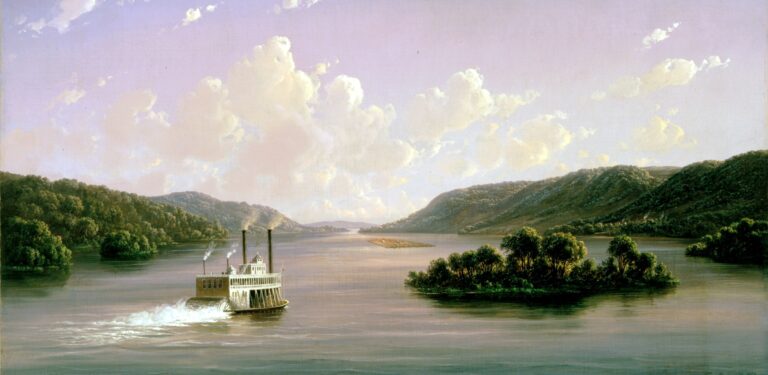Nearly a decade ago, I drove north from my home in rural Mississippi to Memphis. I was headed to a conference where I knew I’d be a strange fit. Most everyone else was an engineer or a biologist or a state game commissioner—representatives of the various agencies interested in making sure the Mississippi River remains a viable home for nonhuman creatures.
I was a fledging journalist, with a vague dream of writing a book about the river. At one point, I eavesdropped as one scientist leaned in to whisper a question to another: The United States of America has claimed this waterway for more than two centuries, and we’ve never been able to settle on an answer. * I am a latecomer to rivers.

The major waterway where I grew up, in suburban Connecticut, was officially labeled a “brook”; long before my birth it had been trapped in a concrete channel meant to keep its water out of nearby yards. Still, for a kid with a bit of wanderlust, its small meanders offered a way to cut through the rigid geometry of suburbia. A friend and I used to walk along its weedy banks, seeking, I now realize, the wildest place we could find in our hometown.
I always dreamed of being somewhere else. In my twenties, I took a job with a nonprofit in Mississippi—a state I’d not only never visited but, until the job offer, had never imagined visiting. Which is how I found myself living on soils that had been carried south by the continent’s biggest river.
Even then, though, I rarely thought abou.
















